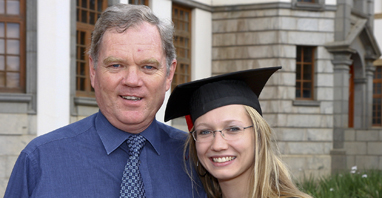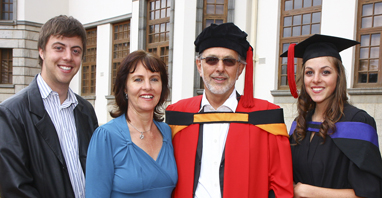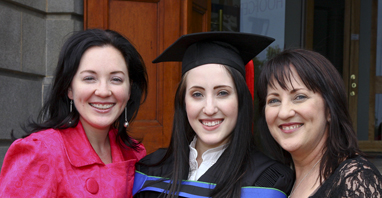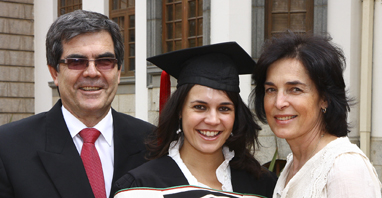|




|
|
Photo: Hannes Pieterse
29 March 2012
|
Carmien, the daughter of Prof. Francois Tolmie, the Dean of the Faculty of Theology, received the degree B.Sc. Hons. (Cum laude) in Biotechnology.
For Prof. Theo du Plessis’ family, the graduation ceremony meant double joy. His daughter, Mènan, received her B-degree in Architecture, while his son, Jean-Pierre, got an award for the best honours project in Computer Science. Here are, from left: Jean-Pierre, Mrs Colleen du Plessis, Prof. Theo du Plessis en Mènan. Prof. Du Plessis is the head of the Department of Language Management and Language Practice and Mrs Du Plessis is a lecturer in the Department of English.
Johané Nienkemper (B.Sc. Hons.) (middle) received the Senate’s medal and prize as the best honours student at the UFS, as well as the Dean’s medal as the best honours student in the Faculty of Natural and Agricultural Sciences. With her are her sister, Marisan Niemkemper, and her mother, Mrs Dorothy Russell of the Department of Paediatrics and Child Health.
Bernadette du Toit (middle) received a B.Com Honours degree (Cum laude) at the graduation ceremony on Friday. She is here with her parents, Prof. Gawie du Toit and his wife, Dr Erna du Toit, both of the Faculty of Education. She is one of three people to receive such high marks in the past 30 years.